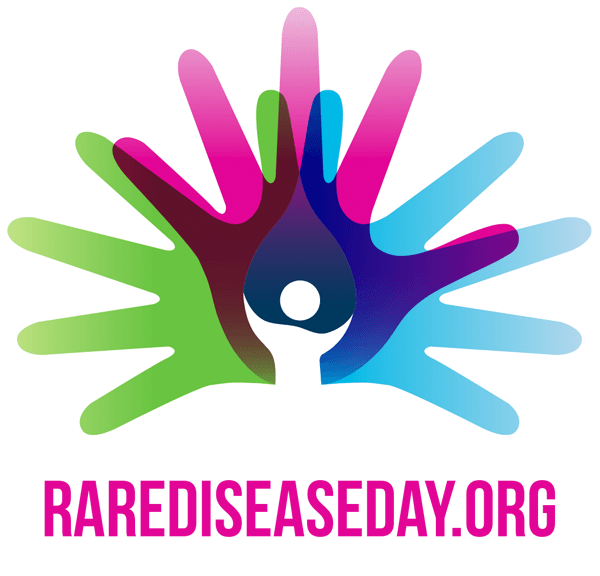Rare Disease Day 2021 Save the Date

Please join us and participate in Rare Disease Day 2021. No action is too small.
Rare Disease Day is the official international awareness-raising campaign for rare diseases. Rare Disease Day takes place on the last day of February each year . This year it is Sunday, February 28th .
What is the purpose of Rare Disease Day?
The main objective of the campaign is to raise awareness amongst the general public and decision-makers about rare diseases and their impact on patients’ lives.
Why bring awareness to Rare Disease?
There are over 300 million people worldwide living with a rare disease. Together across borders, and across the 6000+ rare diseases we work towards more equitable access to diagnosis, treatment, care and social opportunity .
The key message for Rare Disease Day 2021 is:
Rare is MANY worldwide. Rare is STRONG every day. Rare is PROUD everywhere.
What is the Foundation doing this year for Rare Disease Day?
This year we are launching an online campaign (due to COVID restrictions we are not having an in person event). We will feature stories from our families. We will use infographics to bring awareness to Rare Disease and OCNDS using social media, and feature quote graphics from our families that relate to the Rare Disease Day 2021 Campaign. On Sunday, February 28th, we also are hosting an interactive live Zoom event for families from around the world. Details to follow.
How can you participate? There are endless ways to participate. Here are a few ideas:
1. Write a brief story or a poem about what it means to raise a rare child or what it means to have someone rare in your life. Please send before rare disease day to info@csnk2a1foundation.org For examples of stories written by OCNDS families on Rare Disease Day: https://www.csnk2a1foundation.org/we-had-no-idea-by-amber-reynolds/ https://www.csnk2a1foundation.org/i-challenge-you-by-melissa-burnham/ 2. You could create a piece of art or a short film that represents the themes of Rare Disease Day:
Examples are: https://www.youtube.com/watch?v=JV6e0Pp2b0E&feature=emb_title https://www.csnk2a1foundation.org/art-brings-community-together-for-rare-disease-day/ 3. Share a photo with painted hands on social media using #RareDiseaseDay and tag @rarediseaseday #csnk2a1 #ocnds @csnk2a1 4. Share a photo with your foundation shirt, bag or mug on social media using #RareDiseaseDay and tag @rarediseaseday #csnk2a1 #ocnds @csnk2a1 or get creative and make something that represents rare disease day to you (cookies in the shape of a hand decorated different colors etc) 5. Change your Facebook or twitter profile and add Rare Disease Day logo to your profile. To add a frame to your profile picture on Facebook:
- Go to www.facebook.com/profilepicframes
- Select a frame from the menu or search for the frame you want to use (type in Rare Disease Day) The Rare Disease Day 2021 profile frames will appear
- Click Use as Profile Picture to save
Thank you for helping turn Hope Into Action!
